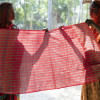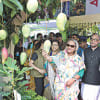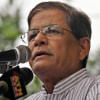It's saving, nearly on all accounts

It was around 10:45 on a sunny Saturday morning. Production was going on in full swing at Plummy Fashions Limited, a Narayanganj-based knitwear garment factory.
Consumption of electricity was 350 kilowatt per hour for the 56,000-square-foot, two-floored factory. Usually, 550-kilowatt electricity is needed to run such a big production house.
However, Plummy Fashions could make it in less than 200kw by adopting green technology. The factory which started operation in mid-2015 uses sunlight during production hours.
“I do not face any problem in doing finer works like sewing or fixing small needles in the machines as there is enough sunlight in the factory,” said Shahnaj Parveen, a sewing operator.
Plummy saves up to 39.1 percent electricity by using natural light.
READ MORE: Solar smile for farmers
Similarly, the factory could spare 41 percent groundwater by preserving six lakh gallons of rainwater and maintaining a natural water reservoir with 60-lakh-litre storage capacity at its premises.
These are the two major components, which could minimise the operational costs of any factory. Plummy Fashion has also 38 percent less carbon emission and spared 64 percent space around the factory located on 6.5 acres of land as per the requirements of green technologies.
The factory produces 65kw electricity from its solar panels and also reuses the dyeing water by recycling it at effluent treatment plants. Its use of daylight is one of the major conditions for obtaining green certification.
By doing so, Plummy has met the highest requirements of the US Green Building Council and scored 92 out of 112 points.
The USGBC has awarded the highest platinum rated certification on Leadership in Energy and Environmental Design (LEED) to Plummy Fashion for its efforts to save the environment and energy in 2015.
In the process, Plummy has earned the prestige of becoming one of the highest rated green garment factories in the world.
Like Plummy, several other garment factories have already adopted green technologies to reduce production costs to make their business sustainable.
Apparently inspired by Plummy's achievement, local textile and garment makers are turning their factories green to make the business more internationally compliant, a fact that helps them attract more retailers.
They are doing so also to be the premium suppliers to the western retailers and brands, industry insiders say.
The renowned retailers and brands place work orders at relatively higher prices to the green factories for their efforts to make the earth more habitable.
So far, 67 garment factories in Bangladesh have achieved the LEED certification by the world's renowned rating agency USGBC for their green initiatives.

Bangladesh hosts seven of the top 10 green factories in the world now. Moreover, the country has the world's top three platinum rated garment factories, according to Bangladesh Garment Manufacturers and Exporters Association (BGMEA).
Currently, Bangladesh has 13 platinum rated, 20 gold rated, 27 silver rated and seven LEED certified garment factories. As many as 222 garment factories have registered for the LEED certification to the USGBC, the BGMEA says.
The USGBC awards the highest platinum certification if any factory scores 80 or above. Likewise, it awards gold for 60 points, silver for 50 and only certification for below 50.
Turning the existing factories to green is a good response to the international communities as they criticised the garment sector for poor compliance, the insiders add.
“Green factories not only save energy, water and environment but also offer a safe workplace,” said KM Rezaul Hasanat, chairman and CEO of Viyellatex Group, which operates two gold rated garment factories -- one in knitwear and one in woven.
One of the buildings has been made in an opera house concept and the other followed the resort concept, he said. Hasanat saves up to 40 percent energy in the green buildings.
In the green initiatives, the factories also have schools, childcare, healthcare and recreation facilities, and training programmes for workers.
READ ALSO: World unites to save oceans
The international retailers are very satisfied with the green initiative, said Abdus Salam Murshedy, managing director of Envoy Group, which also received the LEED certification in platinum category last year for its Bhaluka-based Envoy Textiles.
Envoy Textiles, which mainly produces denim fabrics, follows the requirements of the green initiative, he said, adding, they save 30 percent electricity at their factory.
The green initiatives adopted by different factories help Bangladesh brighten the image of the country as well as the garment sector, said Siddiqur Rahman, president of BGMEA.
“The apparel export growth remains unhurt even after the deadliest Rana Plaza building collapse due to our resilience and green initiatives. Now the international retailers are happy with our compliance and workplace safety,” Rahman observed.

 For all latest news, follow The Daily Star's Google News channel.
For all latest news, follow The Daily Star's Google News channel. 








Comments